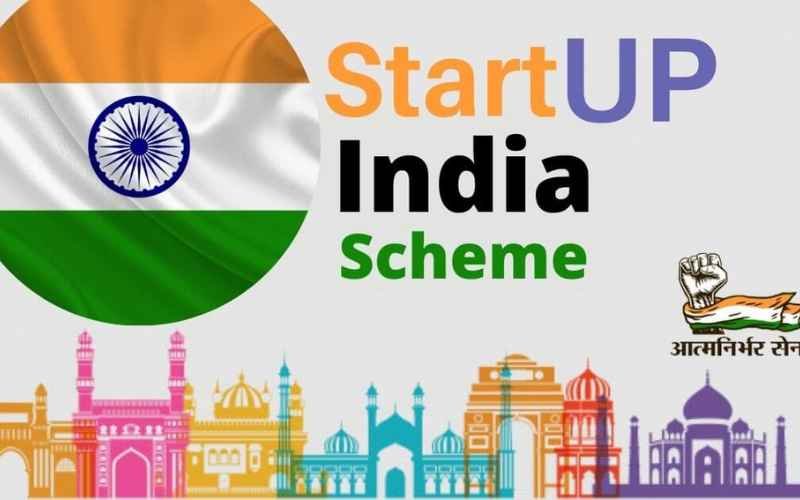Entrepreneurship is at the heart of economic growth, and initiatives like the Start-up India Yojana play a crucial role in fostering innovation and job creation. Launched by the Government of India, this initiative aims to build a robust ecosystem for nurturing start-ups and supporting them through various stages of their growth journey.

What is Start-up India Yojana?
The Start-up India initiative was launched in January 2016 to promote entrepreneurship and create a conducive environment for start-ups in India. It aims to provide financial support, tax benefits, and ease of compliance to budding entrepreneurs across sectors.
Key Benefits for Start-ups
1. Tax Benefits and Exemptions: Start-ups registered under Start-up India are eligible for tax holidays and exemptions for a specified period, which helps in conserving much-needed capital during the initial years.
2. Simplified Compliance and Regulatory Measures: The initiative simplifies the compliance burden for start-ups by introducing self-certification and reducing regulatory complexities, making it easier for them to focus on business growth rather than bureaucratic hurdles.
3. Access to Funding and Financial Support Schemes: Start-ups can access various funding schemes such as the Fund of Funds for Start-ups (FFS) and credit guarantee schemes offered by the government to facilitate easier access to capital.
Eligibility Criteria
To qualify as a start-up under Start-up India:
- The entity should be incorporated as a private limited company, partnership firm, or LLP.
- It should be less than 10 years old from the date of incorporation.
- Annual turnover should not exceed Rs. 100 crore in any of the previous financial years.
The registration process involves submitting an online application with necessary documents such as a business plan, proof of concept, and details of the founding team.
Support and Resources Available
1. Incubation Centers: Incubators supported under Start-up India provide physical infrastructure, mentoring, and networking opportunities to start-ups, helping them refine their business models and scale efficiently.
2. Networking Opportunities and Access to Mentors: Start-ups gain access to a vast network of mentors, industry experts, and investors through various events, workshops, and networking platforms organized under the initiative.
3. Collaboration with Industry Experts and Academia: Partnerships with academic institutions and industry bodies facilitate knowledge exchange, research collaborations, and access to specialized resources needed for innovation.
Success Stories
Highlighting successful start-ups that have thrived under the Start-up India initiative provides inspiration and showcases the impact of government support on entrepreneurial ventures. Case studies can illustrate how these start-ups have leveraged the benefits of the initiative to achieve significant milestones.
Challenges and Solutions
Despite the supportive framework, start-ups in India face challenges such as funding constraints, regulatory complexities, and market competition. Start-up India addresses these challenges through policy reforms, financial incentives, and support mechanisms aimed at creating a more favorable business environment.
How to Register for Start-up India Yojana
Step-by-Step Guide:
- Visit the Start-up India portal and create an account.
- Fill out the online application form with details about your business, founders, and supporting documents.
- Upload required documents such as Incorporation/Registration Certificate, Business Plan, and Proof of Concept.
- Receive recognition as a start-up and avail benefits such as tax exemptions and access to government schemes.
Conclusion
The Start-up India Yojana empowers aspiring entrepreneurs by providing essential support, funding opportunities, and a conducive ecosystem for growth. By leveraging these resources, start-ups can navigate challenges more effectively and contribute significantly to India’s economic development.
Call to Action
Encourage readers to explore the Start-up India Yojana website, connect with incubators, and take the first steps towards registering their start-up. Emphasize the benefits of government support and urge them to seize the opportunity to turn their innovative ideas into successful businesses.
Additional Tips
Use visuals like infographics, charts, and success story videos to make the blog visually appealing and engaging. Incorporate quotes or testimonials from entrepreneurs who have benefited from the initiative to add credibility and inspire readers.
FAQs
- What is the Start-up India Yojana?
- Start-up India Yojana is an initiative by the Government of India to promote entrepreneurship by providing various benefits and support to start-ups.
- Who is eligible to register under Start-up India?
- Any entity, including private limited companies, LLPs, and partnership firms, that is less than 10 years old with an annual turnover not exceeding Rs. 100 crore in any financial year can register under Start-up India.
- What are the benefits of registering under Start-up India?
- Benefits include tax exemptions, easier compliance regulations, access to funding schemes, and support through incubation centers and mentorship programs.
- How can I register my start-up under Start-up India?
- You can register online through the Start-up India portal by filling out the application form and submitting necessary documents like the business plan and incorporation certificate.
- What documents are required for registration?
- Documents typically include the incorporation/registration certificate, business plan, proof of concept, and details of the founding team.
- Is there any fee for registering under Start-up India?
- No, there is no registration fee for registering under Start-up India.
- What tax benefits are available for start-ups under this initiative?
- Start-ups are eligible for income tax exemptions for a specified period, typically 3 out of 7 years, provided they meet the criteria set by the government.
- How does Start-up India support access to funding?
- It facilitates access to funding through schemes like the Fund of Funds for Start-ups (FFS), which invests in SEBI-registered Alternative Investment Funds (AIFs) that, in turn, invest in eligible start-ups.
- What is the duration of the tax holiday provided to start-ups?
- Start-ups can avail of income tax exemptions for any 3 consecutive years out of their first 7 years of incorporation.
- What are the compliance relaxations offered to start-ups under Start-up India?
- Start-ups are allowed to self-certify compliance with labor and environmental laws for a period of 3 years, reducing the regulatory burden.
- Are there any benefits for women entrepreneurs under Start-up India?
- Yes, the initiative offers specific benefits and incentives to encourage women entrepreneurs to start and grow their businesses.
- What support does Start-up India provide for intellectual property rights (IPR)?
- Start-up India facilitates fast-tracking of patent applications and provides financial support for filing patents, trademarks, and designs.
- Can foreign nationals register their start-ups under Start-up India?
- Yes, foreign nationals can register their start-ups in India, subject to complying with Foreign Direct Investment (FDI) regulations and other applicable laws.
- What role do incubators play in the Start-up India ecosystem?
- Incubators supported under Start-up India provide mentoring, infrastructure, networking opportunities, and access to investors, helping start-ups accelerate their growth.
- How can start-ups benefit from networking opportunities under Start-up India?
- Start-ups can participate in various networking events, workshops, and seminars organized by Start-up India to connect with industry experts, investors, and potential collaborators.
- Does Start-up India provide support for market access and international expansion?
- Yes, Start-up India facilitates market access by organizing trade delegations, international networking events, and providing information about global opportunities.
- What are the challenges start-ups might face while registering under Start-up India?
- Challenges could include understanding eligibility criteria, preparing required documents, and navigating the registration process effectively.
- Can start-ups registered under other schemes also register under Start-up India?
- Yes, start-ups registered under other schemes can also register under Start-up India provided they meet the eligibility criteria specified.
- Is there any support available for start-ups operating in Tier-II and Tier-III cities?
- Yes, Start-up India encourages entrepreneurship in Tier-II and Tier-III cities by providing specific incentives and support through dedicated schemes and initiatives.
- How can I stay updated with the latest developments and announcements under Start-up India?
- You can visit the official Start-up India website regularly, subscribe to newsletters, and follow their social media channels for updates, announcements, and events.













